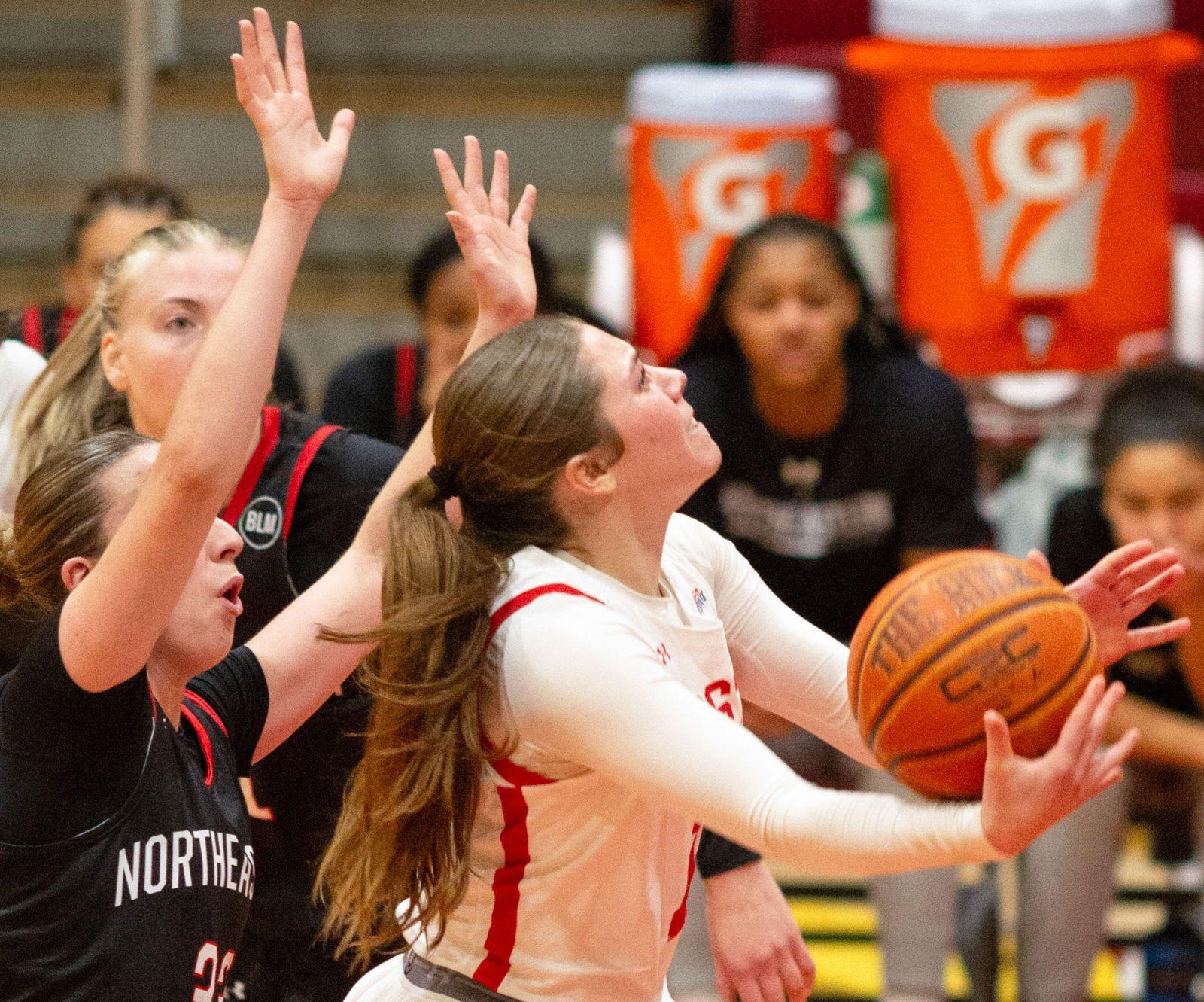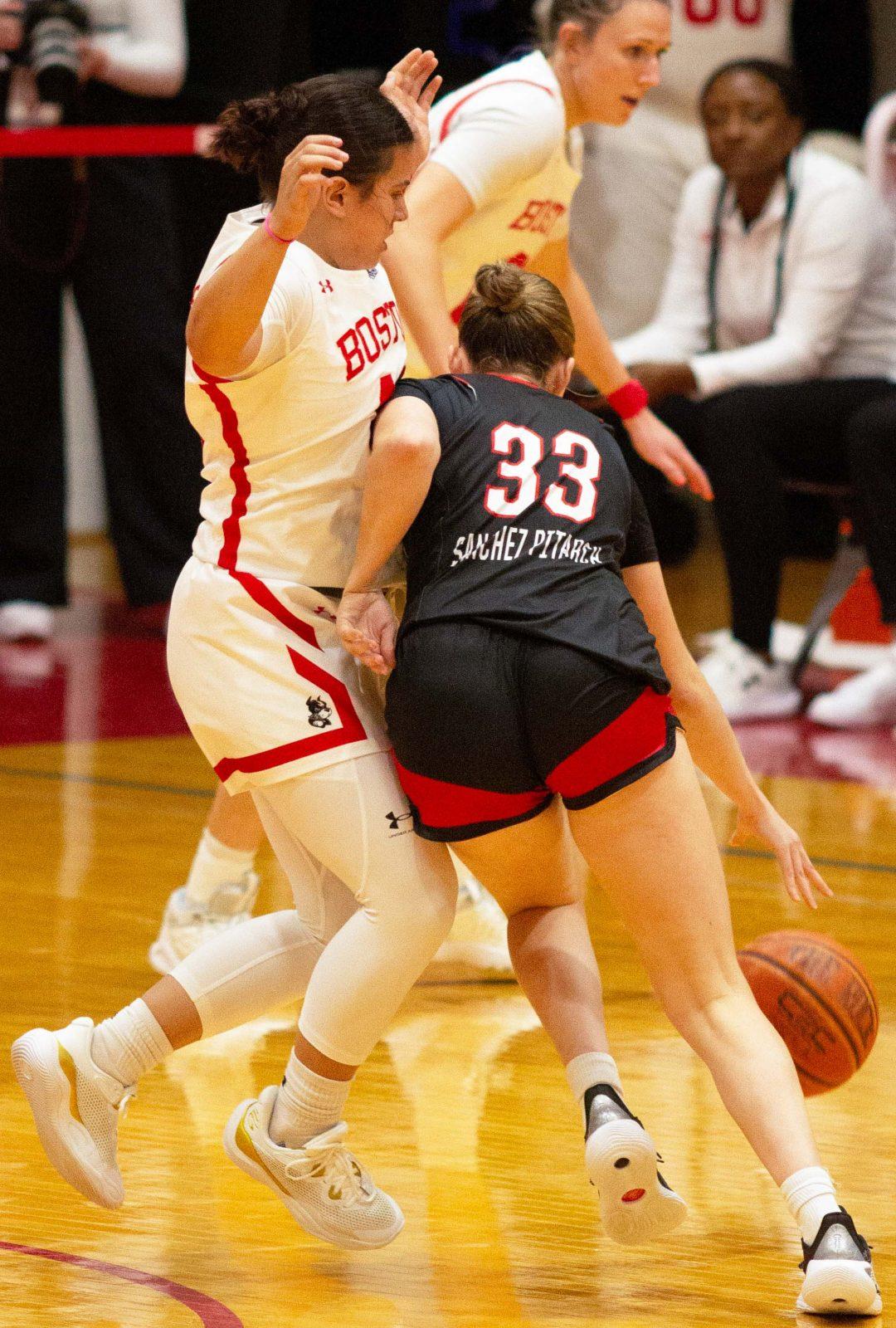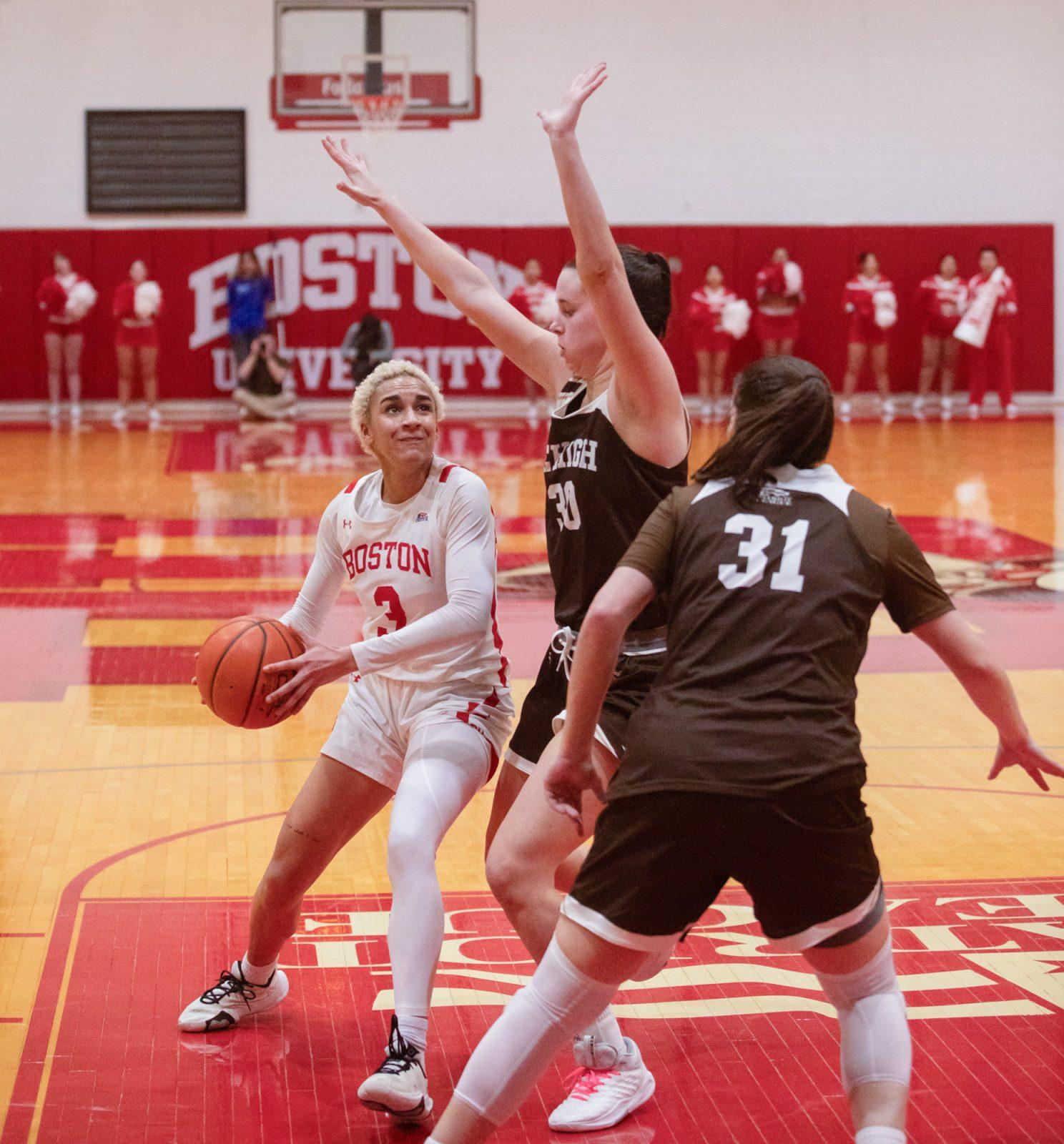When the coronavirus surged throughout the U.S. in March, forcing an abrupt end to all collegiate winter and spring sports, many were not thinking ahead to the upcoming fall sports season. But as student athletes return to their schools, the effects of the virus will surely be felt.
As COVID-19 remained very prevalent throughout the summer, smaller collegiate athletic conferences began to cancel their respective fall sports season.

On July 10, the New England Small College Athletic Conference announced the cancelation of all fall sports competitions, which came just two days after the Ivy League took the same action.
The Patriot League, home to all Boston University Athletics except for ice hockey and crew, then made the decision July 13 to cancel fall sports in hopes of being able to return in spring.
Hockey East, the conference that BU’s ice hockey teams belong to, announced July 29 its plans to move forward with the season, which will prioritize scheduling conference opponents. A start date is yet to be announced.
More major college athletic conferences began to make decisions in August on the viability of fall sports.
On Aug. 8, the Mid-American Conference became the first Football Bowl Subdivision conference to cancel fall athletics, including college football. Two days later, the Big Ten became the first Power 5 conference to do the same — major football programs will no longer play as scheduled.
Another significant cancellation came Aug. 11 with the Pacific-12 conference’s decision to suspend all sports until at least January 2021.
Many university presidents and conference officials who supported the cancelation of fall sports say they have done so out of concern for public health and safety, but their decisions have been met with backlash from players, parents and coaches.
The Big Ten especially has received significant resistance for its decision, as well as for its lack of communication: not consulting players in the decision and never instituting conference-wide guidelines on how to safely practice and play.
University of Michigan football head coach Jim Harbaugh has said he is disappointed in the conference’s decision and that he believes his program was capable of meeting the challenge presented by COVID-19.
Some Big Ten head coaches, such as University Of Nebraska–Lincoln’s Scott Frost and Ohio State University’s Ryan Day, have even considered the possibility of playing in another conference that has not canceled fall sports.
Despite two conference cancelations within the Power 5, the Southeastern Conference, Atlantic Coast Conference and Big 12 have all remained committed to playing sports this fall season.
In the ACC, the field hockey, men’s and women’s soccer and volleyball teams will each compete in the minimum number of games required to be eligible for an NCAA tournament.
For football, each ACC team will play 10 in-conference games and one out-of-conference game, and the non-conference matchup must be against a team within that school’s home state.
The SEC and Big 12 have enacted similar plans with football teams playing a conference-only, 10-game schedule in the SEC and a 10-game schedule with one out-of-conference opponent in the Big 12.
Both the SEC and Big 12 have suspended fall sports competitions until Tuesday. The SEC is expected to kick off its football season on Sept. 26, while the ACC is slated to start on Sept. 10 and the Big 12 on Sept. 12.
The Big Ten and Pac-12 have expressed a desire to play their fall sports in the spring. However, regarding football, several individuals have spoken out against that proposal, saying it would be too much stress on the body to play in spring and then turn around and play the subsequent fall.
The conferences that are currently scheduled to play in the fall could still pull the plug, but as of now they will proceed to play amid the pandemic.





























































































































